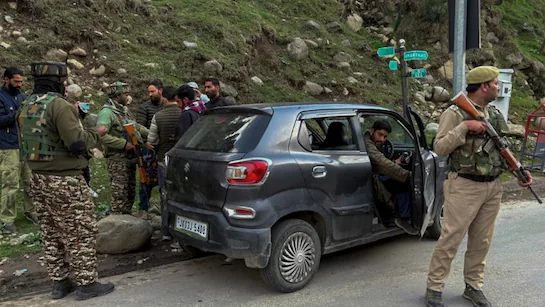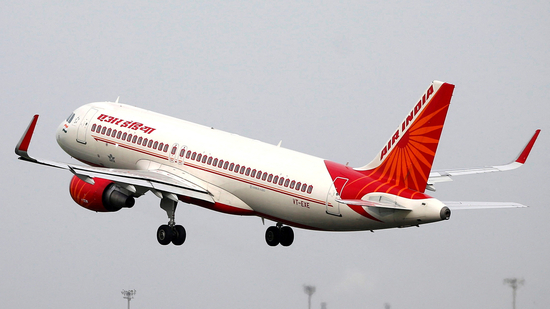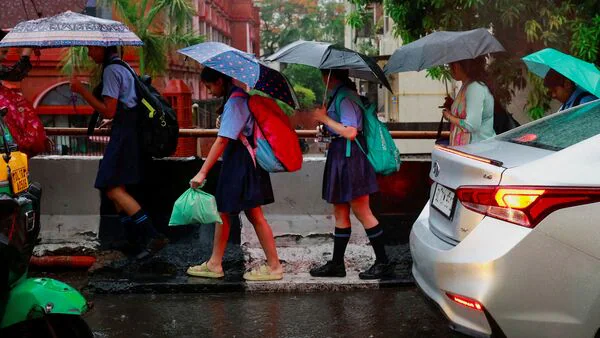Inside the Pahalgam Terror Attack 2025: The Shocking Tragedy That Shook India
- Abhishek

The serene valleys of Kashmir, known for their breathtaking beauty and peaceful atmosphere, were shattered by violence on April 22, 2025. A devastating terrorist attack in Pahalgam, one of Jammu & Kashmir’s most beloved tourist destinations, has left the nation grieving and raised serious questions about security in the region. This tragic incident demands our attention not only for its immediate impact but also for what it reveals about ongoing tensions in this sensitive border area.
The Attack: What Happened in Baisaran Valley
On what began as an ordinary Tuesday afternoon, terror struck without warning. At approximately 3:30 PM, armed assailants disguised in military-style attire launched a calculated attack on tourists enjoying the natural beauty of Baisaran Valley near Pahalgam.
Eyewitness accounts describe a scene of chaos and horror as the attackers opened fire indiscriminately on visitors. In a disturbing development that points to the targeted nature of this attack, survivors reported that the gunmen appeared to selectively spare Muslim women and children after questioning victims about their religious identity. Some witnesses stated that the attackers demanded people recite specific religious verses, using this as a method to identify non-Muslim victims.
The swift and brutal nature of the attack left little time for security forces to respond effectively. By the time additional personnel arrived at the scene, the attackers had fled, leaving behind a tragic aftermath that would soon capture national attention.
The Human Cost: Victims and Survivors
The attack claimed 26 innocent lives and left 17 others injured, many critically. Among the deceased:
25 were Indian citizens from various states including Gujarat, Maharashtra, and Delhi
1 victim was a tourist from neighboring Nepal
Six of the injured suffered critical wounds requiring immediate specialized care and were airlifted to hospitals in Srinagar for emergency treatment. Medical teams worked tirelessly to save lives, with the regional administration mobilizing all available resources for the rescue and treatment operations.
The personal stories emerging from this tragedy—families separated forever, vacation dreams turning into nightmares, and lives cut short in their prime—have deeply moved people across the nation. Memorial services held in multiple states reflected the widespread impact of this attack on communities throughout India.
Responsibility: Tracking the Perpetrators
In the aftermath of the attack, a previously unknown organization calling itself the “Kashmir Resistance” claimed responsibility. This announcement was met with skepticism from security experts, who believe the group may be a front for more established terrorist organizations with known bases across the border.
Intelligence sources have suggested possible connections to known entities such as:
Lashkar-e-Taiba (LeT)
Hizbul Mujahideen
Analysis of the attack’s planning, execution, and targeting strategy indicates professional training and strategic intent rather than random violence. Security officials point to the timing—nearly six years after the constitutional changes regarding Article 370—as significant. The attackers’ manifesto referenced alleged “demographic changes” in the region, suggesting ideological motivations tied to the region’s altered status.
India’s Response: Swift and Multi-faceted
The Indian government’s reaction was immediate and comprehensive, operating on diplomatic, strategic, and humanitarian fronts simultaneously. Within hours of the attack, Prime Minister Narendra Modi convened an emergency meeting of the Cabinet Committee on Security to assess the situation and formulate a response.
The government announced several significant measures:
Expulsion of Pakistani defense attachés stationed in New Delhi
Temporary suspension of the Indus Water Treaty provisions
Closure of the Attari-Wagah border crossing for both travel and trade
Comprehensive review of special visa privileges for Pakistani nationals
In addition to these diplomatic steps, security forces launched extensive operations in the surrounding areas to track down the perpetrators. The Prime Minister addressed the nation, vowing a “crushing response” to those responsible while urging citizens to maintain peace and communal harmony.
International Reactions: Global Solidarity
The international community responded with strong statements condemning the attack. U.S. President Donald Trump characterized it as “a heinous act against humanity” and reaffirmed America’s commitment to supporting India’s counterterrorism efforts. Japanese Prime Minister Ishiba expressed solidarity and offered assistance in intelligence sharing.
The United Nations Secretary-General issued a statement condemning the violence while calling for restraint from all parties. Various international bodies acknowledged India’s right to self-defense while emphasizing the importance of regional stability.
Many nations offered practical assistance, including specialized forensic support and intelligence cooperation. This global response highlights the increasing international consensus against terrorism regardless of stated political motives.
Broader Impacts: Economic and Social Consequences
Beyond the immediate human tragedy, the attack has triggered significant ripple effects:
The tourism industry, vital to Kashmir’s economy, faced immediate devastation with thousands of cancellations reported within 48 hours of the incident. Local businesses dependent on visitor traffic—hotels, restaurants, handicraft sellers, and transportation services—have been particularly hard hit.
Social tensions increased in some regions, with authorities working actively to prevent communal incidents. Civil society organizations across religious lines organized peace rallies and interfaith meetings to counter potential division.
Political discourse intensified around questions of intelligence failures, border security protocols, and counterterrorism strategies. Opposition leaders demanded accountability while supporting the government’s immediate security response.
Moving Forward: Challenges and Hope
As India mourns the victims of this tragedy, difficult questions must be addressed about long-term security in the region. The attack underscores the persistent threat of terrorism and the challenges of protecting soft targets like tourist destinations.
The government has announced increased security measures at popular tourist locations nationwide, along with a comprehensive review of intelligence gathering and sharing mechanisms. Community leaders have emphasized the importance of maintaining India’s secular fabric despite provocations clearly designed to inflame religious tensions.
The resilience demonstrated by local communities in Kashmir—many of whom immediately offered assistance to affected tourists regardless of religion—provides a powerful counternarrative to the divisive intentions behind the attack.
Conclusion
The Pahalgam terror attack represents not just a security challenge but also a test of India’s resolve and unity. While terrorism seeks to divide and instill fear, the nationwide response of solidarity across religious and regional lines demonstrates a shared commitment to peace and coexistence.
As investigations continue and accountability is pursued, the focus remains on supporting survivors, honoring victims, and ensuring that tourism—the lifeblood of this beautiful region—can eventually recover. The path forward will require vigilance, wisdom, and an unwavering commitment to the values that unite rather than divide the diverse communities that make up the Indian nation.
In the face of violence that deliberately targeted religious differences, the most meaningful response may be the strengthening of those bonds that transcend such divisions. This remains the challenge and the hope in the aftermath of this tragedy.







